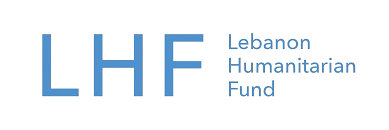The Issue
In Lebanon, local non-governmental organizations (NGOs) are often the first to respond when crises hit their communities. However, despite their proximity, knowledge, and dedication, these organizations face chronic underfunding, limited access to international donor opportunities, and a lack of tailored capacity-strengthening support. As a result, they remain heavily dependent on international actors for funding and technical guidance, which undermines their sustainability and leadership role in humanitarian response.
This imbalance limits the effectiveness and inclusivity of aid efforts, especially in areas where national NGOs have deep-rooted trust and networks. Many lack the systems, policies, and strategic tools needed to manage donor-funded projects independently. Young staff members are passionate but often undertrained in essential areas like financial accountability, proposal writing, and monitoring and evaluation.
As one NGO leader shared, “We know our communities best, but without the skills or resources, we can’t respond the way we want to. We need support that treats us as equals, not just implementers.”. This project addresses these gaps by enabling national NGOs to become autonomous, resilient, and fully equipped to lead humanitarian action in Lebanon.
The Project
This project invested in 10 national NGOs across Beirut, Mount Lebanon, and South Lebanon to strengthen their ability to lead humanitarian work independently and sustainably. From 2024-2025, DCA and its partners supported these organizations through a combination of funding, training, and hands-on coaching.
Each NGO received tailored support based on a detailed assessment of its internal systems and staff needs. Activities included workshops on project cycle management, proposal writing, fundraising, safeguarding, financial accountability, and humanitarian standards such as the Core Humanitarian Standard. In parallel, NGOs received one-on-one mentoring to improve their policies, strategic planning, and operational practices.
To ensure that learning led to action, each partner had access to a small grant, enabling them to implement a humanitarian micro-project. This gave organizations a real-world opportunity to apply what they learned, strengthened their experience with donor compliance, and delivered direct support to their communities. By the end of the project, NGOs was better equipped to manage funding, design quality projects, and advocate for their communities, laying the groundwork for long-term, locally led humanitarian response in Lebanon.
The Change
This project was designed to shift power into the hands of national NGOs, enabling them to lead humanitarian action with confidence, competence, and autonomy. By addressing gaps in technical knowledge, internal systems, and access to funding, the project helped transform local organizations from implementers into strategic leaders.
Through personalized coaching and real-life implementation, NGOs built the skills and experience needed to manage donor funds, develop their own projects, and advocate for community needs. The small grant mechanism played a key role in this transition, allowing each partner to pilot a community-based initiative that reflects both their learning and their local priorities.
By the end of the intervention, the 10 NGOs has become better positioned to access funding, lead quality humanitarian work, and influence aid coordination spaces. This is a step forward toward a more localized, sustainable, and community-rooted humanitarian system in Lebanon.
Impact
By May 2025, all 10 national NGOs had completed in-depth organizational assessments, participated in over 20 group workshops, and received customized one-on-one coaching. Topics included financial management, safeguarding, fundraising, and project design. Each NGO had also successfully developed or revised key internal policies and launched a micro-project utilizing their first-ever direct donor funding. These micro-projects have reached over 3,500 people with emergency assistance, protection services, and health support.
The project has not only built technical capacity but also shifted mindsets, empowering organizations to see themselves as equal actors in Lebanon’s humanitarian response.
About the project
Full title: Support to local civil society actors for a localized, people-centred humanitarian response service delivery across Lebanon
Timeline: 15/08/2024 – 14/08/2025
Amount: 300,000 USD
DCA Theme: Build
Expected number of people reached: Staff of 10 national NGOs based in Beirut, Mount Lebanon, and South Lebanon (200 individuals approx.)
Donor: Lebanon Humanitarian Fund (LHF)


